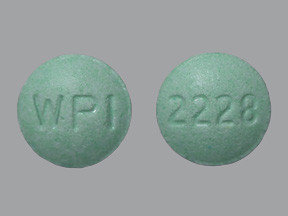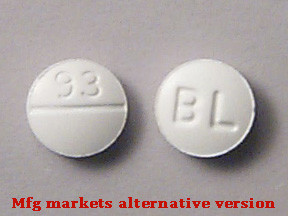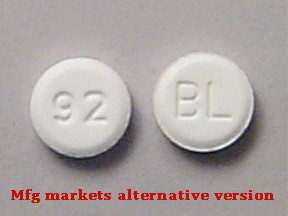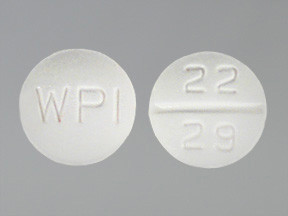METOCLOPRAMIDE - ORAL
PHONETIC PRONUNCIATION: (MET-oh-KLOE-pra-mide)
COMMON BRAND NAME(S): Reglan
GENERIC NAME(S): metoclopramide HCl
Uses
USES: This medication is used to treat certain conditions of the stomach and intestines. Metoclopramide is used as a short-term treatment (4 to 12 weeks) for persistent heartburn when the usual medicines do not work well enough. It is used mostly for heartburn that occurs after a meal or during the daytime. Treating persistent heartburn can decrease the damage done by stomach acid to the swallowing tube (esophagus) and help healing. Metoclopramide is also used in diabetic patients who have poor emptying of their stomachs (gastroparesis). Treating gastroparesis can decrease symptoms of nausea, vomiting, and stomach/abdominal fullness. Metoclopramide works by blocking a natural substance (dopamine). It speeds up stomach emptying and movement of the upper intestines. This drug is not recommended for use in children due to an increased risk of serious side effects (such as muscle spasms/uncontrolled muscle movements). Ask the doctor or pharmacist for details.
How to use METOCLOPRAMIDE - ORAL
HOW TO USE: See also Warning section. Read the Medication Guide provided by your pharmacist before you start taking metoclopramide and each time you get a refill. If you have any questions, consult your doctor or pharmacist. Take this medication by mouth 30 minutes before meals and at bedtime, usually 4 times daily or exactly as directed by your doctor. If you are using the liquid form of this medication, carefully measure the dose using a special measuring device/spoon. Do not use a household spoon because you may not get the correct dose. If you are using the disintegrating tablet, do not remove the tablet from the blister pack until right before your dose. Dry your hands before using this medication. Do not use the tablet if it is broken or crumbled. Immediately after removing the tablet, place it on the tongue. Allow it to dissolve completely, then swallow it with saliva. You do not need to take this product with water. The dosage is based on your medical condition, response to treatment, age, and other medications you may be taking. Be sure to tell your doctor and pharmacist about all the products you use (including prescription drugs, nonprescription drugs, and herbal products). If heartburn only occurs at certain times (such as after the evening meal), your doctor may direct you to take a single dose before those times instead of taking it throughout the day. This will reduce your risk of side effects. Because of the risk of tardive dyskinesia, do not take this more often, in larger doses, or for longer than directed by your doctor. According to the manufacturer, treatment should not exceed 12 weeks. To treat diabetic gastroparesis, this medication is usually taken for 2 to 8 weeks until your gut is working well. This condition may recur from time to time. Your doctor may direct you to start taking this medication as soon as your symptoms reappear and stop when you feel better. Ask your doctor for directions for starting and stopping this medication. Take this medication regularly as directed to get the most benefit from it. To help you remember, take it at the same times before a meal each day. If this medication has been used regularly for a long time or in high doses, withdrawal symptoms (such as dizziness, nervousness, headaches) may occur if you suddenly stop using this medication. To prevent withdrawal reactions, your doctor may reduce your dose gradually. Consult your doctor or pharmacist for more details, and report any withdrawal reactions right away. Tell your doctor if your condition persists or worsens.
Side Effects
Precautions
Interactions
Overdose
Images

- color
- light green
- shape
- round
- imprint
- WPI, 2228
Reviews
Faq for METOCLOPRAMIDE - ORAL
Metoclopramide - Oral is commonly used to treat and prevent symptoms of nausea, vomiting, and acid reflux.
Metoclopramide - Oral works by increasing the muscle contractions in the upper digestive tract, which helps to move food and acid through the stomach and intestines more effectively.
Common side effects of Metoclopramide - Oral include drowsiness, restlessness, fatigue, headache, diarrhea, and an increase in the production of breast milk.
Metoclopramide - Oral should only be used during pregnancy if the potential benefits outweigh the potential risks to the fetus. It is best to consult a healthcare professional before using this medication during pregnancy.
Metoclopramide - Oral is typically taken 30 minutes before meals and at bedtime, or as directed by your healthcare provider. It can be taken with or without food. Follow the instructions provided by your doctor or pharmacist.
Yes, Metoclopramide - Oral can interact with other medications, particularly those that affect the central nervous system. It is important to inform your doctor or pharmacist about all the medications you are taking or plan to take to avoid potential drug interactions.
Metoclopramide - Oral usually starts working within 30 minutes to 1 hour after taking it. However, the exact onset time may vary from person to person.
Metoclopramide - Oral can be used in children, but the dosage and safety should be determined by a healthcare professional. It is important to follow the recommended guidelines for pediatric use.
No, Metoclopramide - Oral is not considered habit-forming.
Warning
WARNING: This medication may cause a serious movement disorder called tardive dyskinesia. In some cases, this condition may be permanent. The risk of tardive dyskinesia is increased with the longer use of the medication and the more medication that you take. The risk is also increased in older adults (especially women) and in people with diabetes. Do not use metoclopramide for longer than 12 weeks. Talk to your doctor about the risks and benefits of this medication. Tell your doctor right away if you develop any unusual uncontrolled movements (especially of the face, mouth, tongue, arms or legs). There is no treatment for tardive dyskinesia, but in some cases the symptoms may lessen or stop once metoclopramide is stopped.
Disclaimer
IMPORTANT: HOW TO USE THIS INFORMATION: This is a summary and does NOT have all possible information about this product. This information does not assure that this product is safe, effective, or appropriate for you. This information is not individual medical advice and does not substitute for the advice of your health care professional. Always ask your health care professional for complete information about this product and your specific health needs.



No Reviews Yet